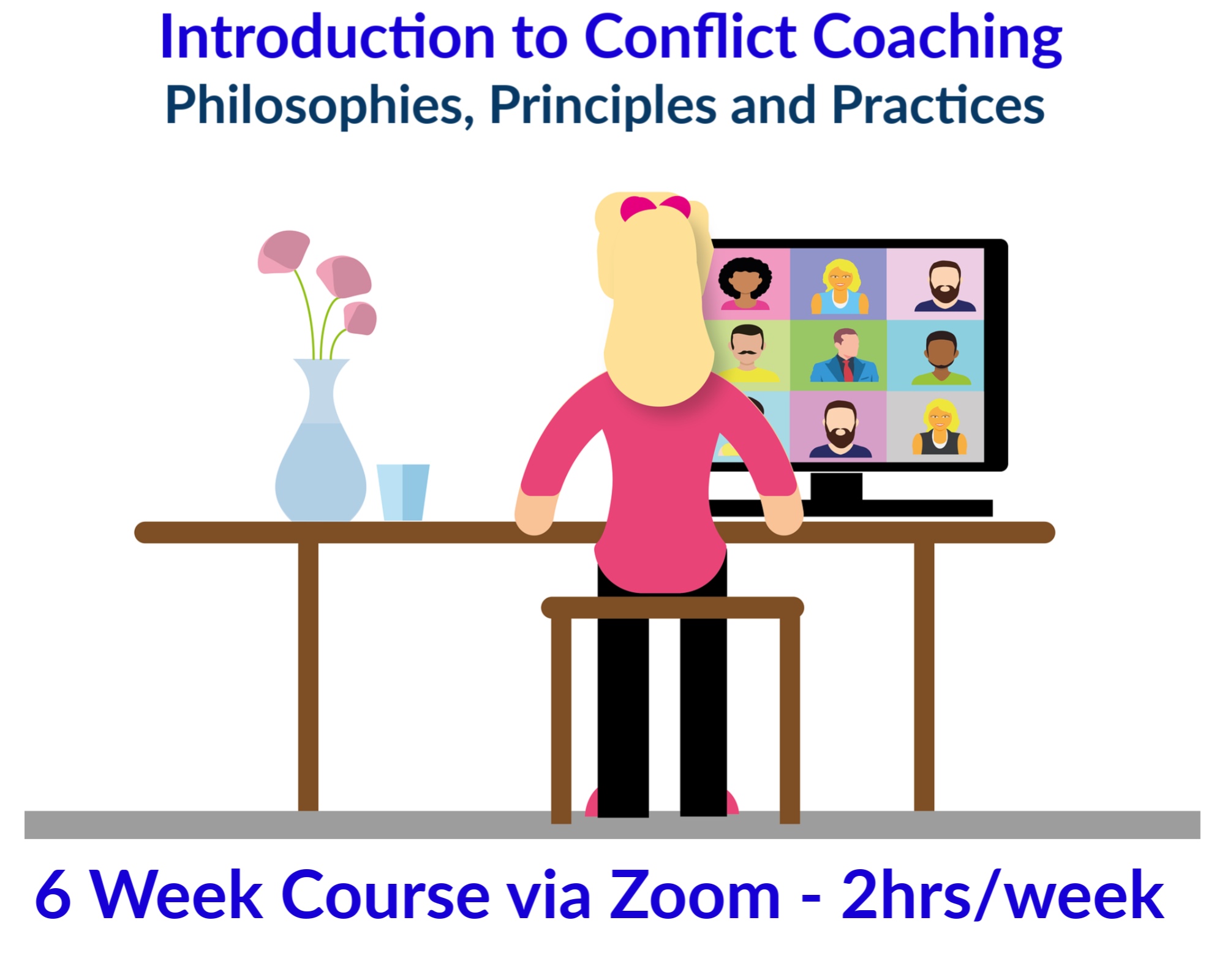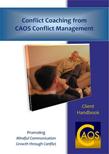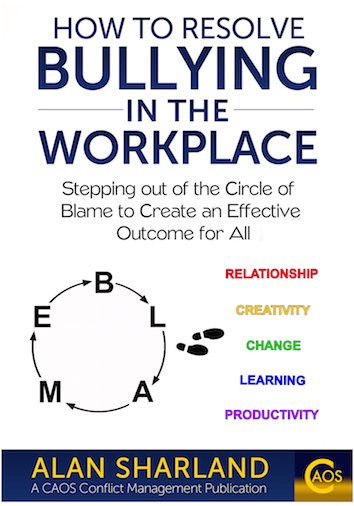Contact CAOS Conflict Management on 020 3371 7507
Mediation Accreditation, Qualification and Certification.
Clearing up Confusions for Clients and Potential Mediation Skills Trainees
Mediation accreditation is a source of a lot of confusion in the mediation world and so we would like to clarify some of the meanings and different contexts in which the terms 'mediation accreditation' and sometimes 'mediation qualification' are used and what they mean in these different contexts.
 There are many types of mediator, many types of mediation accreditation and certification.
There are many types of mediator, many types of mediation accreditation and certification.Accredited Mediator
Mediation accreditation in relation to a being a Mediator:
First of all, mediation is not a regulated practice other than in some very specific areas mainly within the divorce/separation legal context, but in almost all other areas of mediation practice there are a range of different accreditations provided by different training bodies for those who train with them.
None of these accreditations are 'the required mediation accreditation' for someone to practise as a Mediator.
Strictly anyone can describe themselves as a mediator whether they have trained on a course or not, and so it is important for any client to look at the history and experience of any mediator they commission to provide mediation for them rather than simply look for the term 'accredited' or 'qualified' mediator.
Why is this necessary?
Any mediation training provider may choose to describe their attendees as 'accredited' once they complete their course.
At CAOS we don't use that term because of the kinds of confusion it can lead to that will be described in this article. We say that people who train with us are 'CAOS-trained' and they receive a CAOS Mediation Model Practitioner's Certificate on completion of the course. ACAS uses a similar terminology about its own training.
This means that what is notable about people who complete our training is that they provide the CAOS Model of Mediation which has particular unique features that we feel best provides a process that supports effective communication and creativity in response to a conflict.
This model is based on 27 years of experience working in various areas of mediation and the development of a model which can be used in those different areas and others, because the process has a generic focus on supporting effective communication and creativity in response to conflict.
Recommendation: Any client looking to commission a mediator asks for clear details about how they conduct the process in order to see if it fits what they are expecting or if not sure what to expect, to see if it sounds like an approach that you would find useful.There are many different approaches available.
Accredited Mediation Training Courses
Mediation accreditation in relation to training of mediators:
For people wanting to train to become practising mediators, it is important to know whether the training you attend is very much focused on experiential learning via role plays and other reflective-practice approaches in order to develop the skills and understandings needed to provide the mediation process -or not.
Because a course is accredited it may sometimes focus more on learning 'about' mediation in a more academic sense with less focus on directly learning the skills and practices and other self-awareness developing activities through an experiential learning approach.
Many training courses that are accredited do ensure a practice-focused approach but the accreditation of the course may not require that it is specifically experiential before being accredited.
It is therefore important that anyone wanting to train to become a practising mediator looks more deeply into whether it provides this experiential, practice-focused training rather than just whether it is 'accredited' or not as there may be a more academic study delivery style with less direct focus on the skills.
Some accrediting bodies acknowledge in their literature that their accreditation of a mediation course and any qualification arising from it 'does not confer practitioner status' in order to ensure these confusions do not arise.
This means that the course, while accredited, is not providing a 'regulated' qualification as there is not a regulating body that awards such qualifications in the mediation field - again, apart from in some areas of separation/divorce mediation that operates within the courts.
Here's an article on mediation accreditation entitled 'You say you’re a certified mediator. Says who?' from the USA where similar confusions can sometimes arise.
Some courses deliver an initial training via speakers or presentations with perhaps a small amount of experiential practice but the main practical skills element may be developed through a supplemental aspect to the course such as observing practising mediators after the course is over.
At CAOS we don't use this approach as it can be very difficult for trainees to find mediators willing to be observed for reasons of client confidentiality and simply because it can disturb the delivery of the process to the clients, who of course have to be of primary concern. It can also lead to additional cost for the trainee as observations will often have to be paid for.
The CAOS course introduces the skills of mediation practice from the first day of the 6-day course and participants engage in role plays, group interactive discussions and reflective practice throughout the course and so, based on our 25 years of preparing people to practise as mediators we are confident that people end the course with the competencies and philosophical and practical understandings required to provide the mediation process.
However, we also make it clear that no-one is ever the 'complete' mediator and that ongoing continued reflective practice is crucial. This is another reason why we prefer not to describe people who have completed the training as 'accredited' or 'qualified' as it can imply that their learning is 'complete' and we emphasise on the training course that the discipline of mediation practice has to involve ongoing self-reflection and learning from practice challenges and mistakes.
We see the experiential learning and development approach to mediation as an essential part of the role of being a mediator. Mediation is not a process that can be effectively delivered following the learning of a body of knowledge and then doing written tests in order to pass, it is a discipline of practice requiring continued self-reflection on whether the essential skills and philosophies of the practice are being adhered to.
Mediation is more a 'discipline' than a profession, and if this topic is of interest to you, this article explains more.
Recommendation: If you wish to train to become a practising mediator, ensure that you look beyond simply whether a training course is accredited or not or whether you are given the training provider's accredited status after completion. Accredited training does not have to be practice-focused and any qualification arising will not 'confer practitioner status' as there is no regulated requirement for this.
What is more important if you wish to go on to practise mediation is whether the training directly provides experiential practice of the process throughout the course and does not require you to do follow on work such as observations, unless you are clear that in such situations you do also have substantial practice opportunities on the course itself.

Membership organisations for mediators.
Mediation accreditation in relation to membership of certain organisations.
There are a range of membership bodies that mediators can join after training and there can also be some confusion about their status in relation to mediation accreditation.
Examples include: The College of Mediators, The Civil Mediation Council, CEDR, and many others.
Membership organisations are often described as professional bodies but this can again sometimes suggest they are regulatory bodies perhaps like the General Medical Council is for General Practitioners.
However this is not so.
While a complaint to one of these membership bodies about the conduct of one of their members is possible, and will be assessed according to their publicly available Code of Practice, they are only able to cancel the membership of their member who has been complained about as any form of sanction rather than 'strike them off' or prevent them practising in other ways.

Mediation accreditation in relation to complaints and quality assurance:
Complaints about mediation practitioners are more effectively pursued via consumer rights regulations based on what a mediator or mediation organisation has described their service to be, and if that is not fulfilled.
This webpage gives a useful outline of the 'landscape' around this issue but the relevant section from the page is quoted below:
What can I do if I have a complaint about my mediator?
If you aren't happy with the way things are going with your mediator, don't be afraid to speak up. Contact them to say what's gone wrong. Ask them to put things right.
If you are paying your mediator, you have rights under the Consumer Rights Act 2015. If your mediator is a member of a professional body and you feel your mediator has not met the standard of service expected of the body's members, the professional body could look into your complaint. If you're still unhappy, the professional body could pass on your complaint to an external adjudicator.
The Legal Ombudsman can't deal with your complaint, as it can only look at service complaints about regulated legal service providers.
At CAOS we have a more bespoke discussion with any client rather than just rely on a 'standard outline' of what we do so that it covers any questions that may have arisen following initial contact. We outline clearly via email what we offer so that clients can make their decision accordingly.
Unfortunately in contexts where clients pass over the commissioning of a mediator to a representative such as a lawyer there is a risk that they do not get a chance to fully understand what the mediation process entails nor sometimes its purpose in full.
This is why CAOS always ensures direct involvement of any client(s) in making decisions about whether they wish to use our service so that it appropriately remains a client-led process.
Finally: 'Choose providers that have a recognised mediation accreditation'...what does this mean?

We hope that you can see that when you read a phrase that suggests there is a 'recognised mediation accreditation' it doesn't really have a specific meaning. There are many 'accreditations' of courses that can be used for a range of different areas of learning but there is not ONE specific and required accreditation for mediation courses.
Similarly there is not just one accreditation of mediators as various different training providers accredit those who complete their courses even though they may train them in very different approaches.
Recommendation: So whether you are a client looking for a quality assured provider of mediation or someone wishing to train to be a mediator, we would always recommend a thorough exploration with any provider about what they actually provide so that you are clear it is what you are looking for.
At CAOS we don't see this as a 'shortfall' in the mediation world as people do have different wishes and intentions for using mediation or training to be a mediator, but obviously it does involve more than just a cursory glance at what is being considered for 'buying into' before going ahead, and hopefully you agree with us that this is better for everyone in the long term.
We will always be happy to explain to you what the CAOS Model of Mediation is whether you wish to use our service or train to become a CAOS-trained Mediator or Conflict Coach.
Please feel free to contact us via 020 3371 7507 or via our enquiry page to find out more.
Join our Online course:
An Introduction to the Philosophies, Principles and Practice of the CAOS Model of Conflict Coaching - Click this link to find out more
This is what people say about CAOS training...
"In my 20 years experience as an academic this is the best ‘in-service’ training I have experienced. The quality of the training team’s preparation and the skill with which they conducted the course was impressive."
Dr Meretta Elliott -Senior Lecturer-School of Arts-Brunel University - speaking about a 6-day Mediator training course run by Alan Sharland and colleagues.
"This was not an easy course; the challenges involved in working outside one’s usual mode of operation were considerable, but the upbeat attitude of the trainers and the calm and supportive atmosphere they created meant that I was free to work outside my comfort zone in developing an approach to assisting others deal with their own situations."
Dr Mary Richards - Subject Leader for Drama - Brunel University - also speaking about the Mediator training course.
"This was a very successful workshop, feedback described the day as “fun”, “interesting” and “informative” with a “superb” trainer who had a “very thoughtful approach”. 100% of our attendees said they had enjoyed the course and they would recommend it to colleagues."
Tania Murrell - Business Development Manager, Hillingdon Association of Voluntary Services - speaking about the workshop 'Dealing with Difficult Behaviour' run by Alan Sharland.
Train to be a Mediator with CAOS Conflict Management
"Alan provided excellent training for mediators at Common Ground Mediation which was challenging but also thoroughly enjoyable.
He led us through various interactive exercises to help us reflect on the mediator's role and impartiality. I would highly recommend Alan as a trainer for mediators."
Morag Steven - Director of Common Ground Mediation, Edinburgh, Scotland.
Here's a Handbook to help you practise more effective communication and to review and improve how you are responding to unresolved conflict:
The CAOS Conflict Coaching Clients Handbook
Buy Now for just £4! or click on the image to find out more.
Mediation from CAOS Conflict Management
CAOS Conflict Management provides mediation in all types of dispute situations but links to some of the main areas are given below:

University Mediation including student complaints and accommodation disputes.
Please click the image above or the text below to purchase this book written by Alan Sharland, Director of CAOS Conflict Management:

Equality and Diversity Mediation








